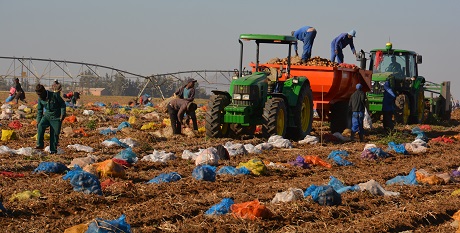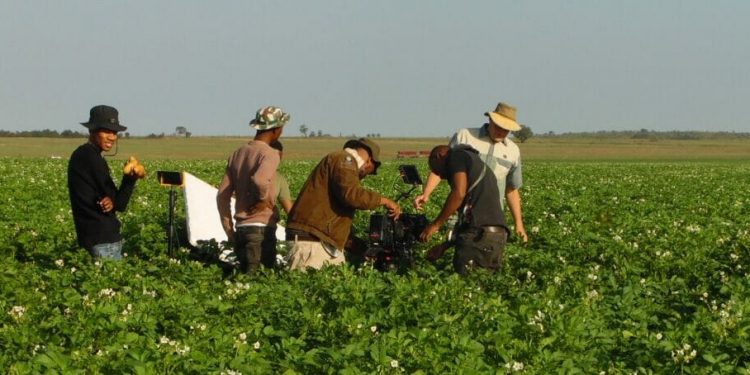Despite having proved resilience last year by producing 2.6-million tonnes, the South African potato industry is appealing to stakeholders to form more partnerships to drive growth and transformation.

Potatoes South Africa (PSA) CEO Willie Jacobs highlights that the potato helped ensure food security throughout the pandemic in South Africa last year. He remarks that, if the agricultural sector is to stimulate South Africa’s economy, all-round and continued involvement from all role-players will be required to optimise the potato industry’s impact.
Jacobs notes that, over and above potatoes helping to ensure food security, it has also contributed to better nutrition in communities, considering the multitude of vitamins and minerals packed in the root vegetable. Per capita potato consumption in South Africa has increased markedly in the last ten years, proving the powerful impact that the staple food has in the country, says PSA. The organisation represents 570 producers across 16 regions of production. The potato industry provides employment for between 50 000 and 60 000 people.
However, it remains largely untransformed, considering that only 1% of the country’s production comes from black-owned farms. For the second quarter of 2020, Statistics South Africa reported that the farming sector, along with forestry and fisheries sector, was the only positive contributor to the country’s gross domestic product, growing by 15.1% while the economy contracted by 51% quarter-on-quarter.
In addition to the agricultural sector’s above-average performance in the second quarter last year, providing hope where economic heft was wholly lacking because of the hard lockdown, it is worth noting that potato production yields at least R6.6-billion for the country’s economy. Potatoes, like all other fresh produce, are sold through multiple channels, with national fresh produce markets being the main driver of fresh produce sales.
During the Alert Level 5 and 4 lockdown, the restrictive regulations limited trade, thereby inspiring traders and producers to find direct ways of connecting. Volumes recorded by PSA under the levy requirements revealed a migration from national fresh produce markets to direct transacting. Since then, that trend has mushroomed and caused a hard blow to the informal sector – a sector that accounts for the trade of 66% of potatoes at national fresh produce markets.
A PSA campaign launched earlier this year, called #WhenHopeWhispers, has looked at the trials and tribulations of fresh produce informal traders, who buy up about 36% of the total potato crop. Jacobs has implored government to look at ways of supporting potato farming and potato trading, since it holds much opportunity for employment, transformation and food security.
He says considering that 690-milllion people lived in a state of chronic hunger in 2020 and that 265-million were at risk of famine, it is worth supporting an industry that can help counter these issues closer to home. Although Africa as a continent has the human capital, resources and land to ensure food security, it lacks organisation and management, says Pan-African Parliament ambassador for food security Dr Brylyne Chitsunge.
She spoke during an inaugural State of the Potatoes Industry Address on May 5, highlighting that government and farmers have been working in silos for far too long. Chitsunge believes the key to supporting the industry lies in government equipping and incentivising commercial farmers to, in turn, scale up smallholder farmers and create linkages. She also suggests that government help create hubs in farming communities for them to access information on farming best practices.
“We need smallholders to attain knowledge and provide, in this manner, surety for banks, so that they can access finance,” she laments, adding that, if a smallholder has the backing of a commercial farmer with an existing credit record, that will help even more. Former PSA CEO Professor André Jooste spoke during an information day event in 2016, explaining that potato production cost five to six times more than growing maize, which poses a challenge when it comes to access to finance.

Additionally, owing to the rotational crop requirements of potatoes, producers need at least 20 ha of land to plant 5 ha of potatoes. PSA regularly collaborates with banks, input suppliers and offtakers to support small-scale growers and is appealing for more of these partnerships in the industry. Chitsunge notes that South African farmers and government should strive to reach a state of “food serenity”, with a potatoes and overall farming industry that is untroubled, instead of just being abundant and secure.








